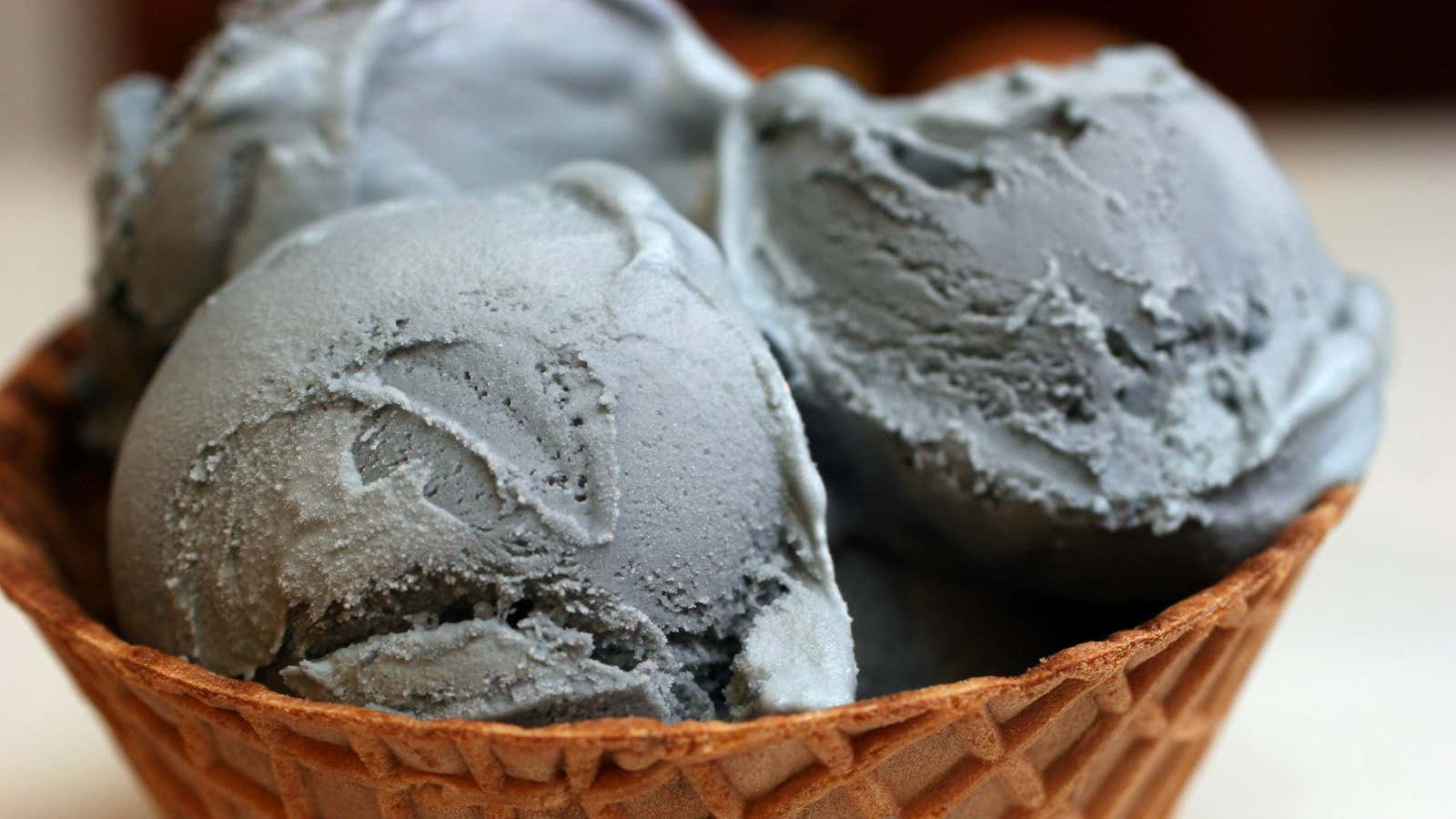Even if you’re going to gorge on candy this Halloween, there’s one type you should absolutely only eat in moderation.
On Oct. 30, the US Food and Drug Administration issued a reminder that black licorice poses serious health risks if eaten in excess. For people over 40, licorice can cause the heart to beat irregularly, which can be particularly dangerous if you already have other chronic heart-related conditions like high blood pressure.
Black licorice candy is made using an extract of the roots from the licorice plant, Glycyrrhiza glabra. The plant has been used as an herbal remedy for digestive problems and colds for centuries, although the scientific evidence is mixed about whether or not it actually works.
In addition to the components of licorice that give it its potential health benefits, the stuff contains a chemical compound called glycyrrhizin, which is responsible for that unique, sickly-sweet (and, in this reporter’s opinion, terrible) flavor of licorice candy. In large amounts, glycyrrhizin can deplete the body’s supply of potassium. It blocks an enzyme (paywall) that helps us process cortisol, and as a result our kidneys may release too much potassium, too quickly, followed by a rapid drop. Potassium helps the heart continue to beat regularly and keeps blood pressure steady. If potassium levels drop suddenly, blood pressure can rise, you can retain fluid and swell up, and risk for heart failure goes up.
Last year, the FDA received a complaint from someone who had eaten too much licorice and experienced heart trouble. Now, the FDA advises everyone to watch their licorice consumption, and to seek medical attention if they feel weak after eating the stuff. You should also make a point to ask your doctors to make sure that licorice won’t interfere with any other medication; any herbal supplement (including the licorice extract in your black licorice candy) may have unintended consequences.
The good news is, you’d have to eat a lot of licorice to have these negative effects—at least two ounces a day (often more than the entire contents of a tin of candies) for 14 days before you’d run into these negative consequences, according to the FDA. If you really, really want to eat that much black licorice candy, look for “deglycyrrhizinated licorice”—it’ll still have the same black licorice taste, but with none of the glycyrrhizin.
